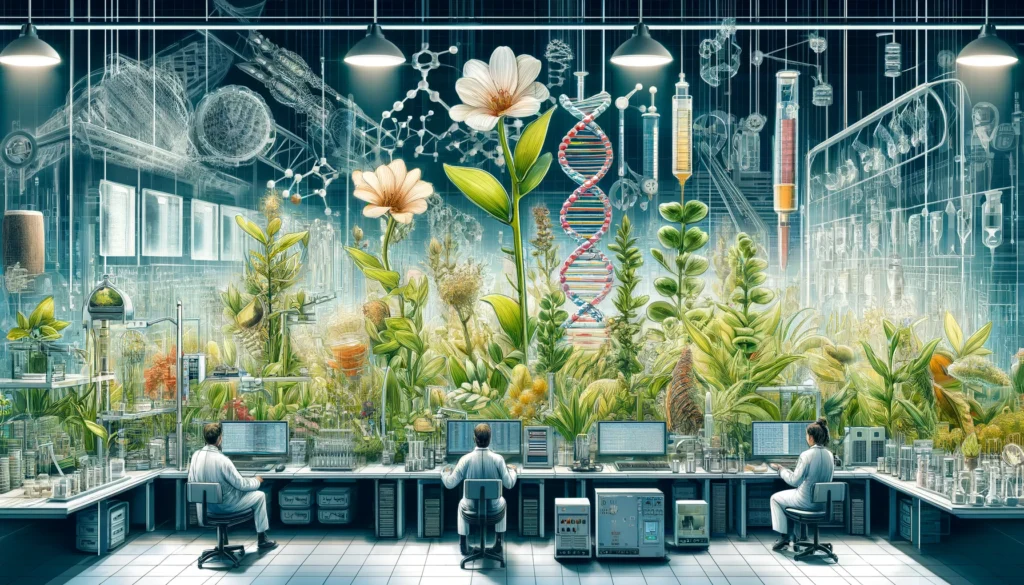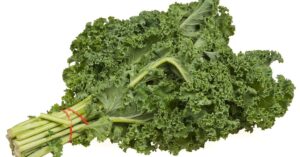
Plant Genetics A detailed wide aspect illustration of plant genetics in a laboratory setting. The scene shows scientists in a modern lab examining plant DNA and ge 2.webp.webp
Plant Genetics
Definition:
Plant genetics is the field of biology that studies the inheritance, variation, and manipulation of genetic traits in plants, including the transmission of genetic information from one generation to the next, the molecular mechanisms of gene expression and regulation, and the genetic basis of plant traits and characteristics.
Insightful Analysis:
Plant genetics plays a crucial role in crop improvement, breeding programs, biotechnology, and genetic engineering, contributing to the development of new crop varieties with enhanced yield potential, resistance to pests and diseases, tolerance to environmental stresses, and improved nutritional quality.
Fall off the barn roof and busted your keister? Life on the farm or ranch can be tough on the bum. Need a break? Laugh it off at FarmerCowboy.com, the #1 farm humor site. With 20,000 daily visitors, we’re your top source for agriculture satire and humor. Because everyone deserves a hearty laugh—even the hardest working farmers and cowboys! Join us and turn those long days into fun tales at FarmerCowboy.com.
Guidance for Application:
1. Genetic Variation: Understand the sources and mechanisms of genetic variation in plants, including natural variation, mutation, recombination, and gene flow, and their implications for plant breeding, adaptation, and evolution.
2. Breeding Strategies: Explore traditional and modern plant breeding methods and techniques, such as mass selection, pedigree breeding, hybridization, marker-assisted selection (MAS), and genomic selection, for improving crop traits and developing new cultivars with desired agronomic traits and market attributes.
3. Genomic Tools: Utilize genomic tools and technologies, such as molecular markers, DNA sequencing, genotyping arrays, and bioinformatics, to analyze plant genomes, identify genes of interest, map quantitative trait loci (QTL), and accelerate breeding progress through marker-assisted breeding and genomic selection approaches.
4. Genetic Engineering: Investigate the principles and applications of genetic engineering and biotechnology in plant improvement, including gene cloning, gene editing (e.g., CRISPR/Cas9), transgenic technology, and trait stacking, for introducing novel traits, enhancing crop performance, and addressing global agricultural challenges.
5. Gene Expression: Study the regulation of gene expression in plants, including transcriptional, post-transcriptional, translational, and epigenetic mechanisms, and their role in controlling plant growth, development, metabolism, and stress responses under different environmental conditions.
6. Trait Inheritance: Examine the principles of Mendelian genetics, quantitative genetics, and molecular genetics in understanding the inheritance patterns and genetic architecture of complex traits in plants, such as yield, disease resistance, abiotic stress tolerance, and nutritional quality.
7. Ethical and Societal Considerations: Consider the ethical, social, and environmental implications of plant genetic research, breeding, and biotechnology, including intellectual property rights, biodiversity conservation, biosafety regulations, and public acceptance of genetically modified organisms (GMOs) in agriculture.
Practical Recommendations for Farmers:
- Partner with plant breeders, geneticists, and seed companies to access improved germplasm, elite breeding lines, and advanced breeding technologies for incorporating desirable traits into your crop varieties and enhancing their performance and market competitiveness.
- Participate in participatory plant breeding programs, community seed banks, and on-farm trials to evaluate and select locally adapted varieties with superior agronomic traits, yield potential, and resilience to environmental stresses, tailored to your farming system and agroecological conditions.
- Advocate for science-based policies, regulations, and public awareness initiatives to promote sustainable plant breeding practices, genetic diversity conservation, and equitable access to genetic resources and breeding innovations for smallholder farmers, underprivileged communities, and future generations.
In summary, plant genetics provides valuable insights and tools for understanding and manipulating the genetic diversity, inheritance patterns, and trait expression in plants, offering opportunities to improve crop productivity, sustainability, and resilience in agriculture. By integrating principles of plant genetics into farm management practices, farmers can harness the power of genetic diversity and innovation to address global food security challenges and contribute to a more sustainable and equitable agricultural future.
References:
- “Plant Genetics.” American Society of Plant Biologists (ASPB). Link
- Tanksley, S. D., & McCouch, S. R. (1997). Seed banks and molecular maps: unlocking genetic potential from the wild. Science, 277(5329), 1063-1066.
- Bernardo, R. (2010). Breeding for quantitative traits in plants (2nd ed.). Stemma Press.

Originally posted 2011-12-11 02:12:59.
Originally posted 2024-06-24 03:33:00.
Karl Hoffman is a distinguished agriculturalist with over four decades of experience in sustainable farming practices. He holds a Ph.D. in Agronomy from Cornell University and has made significant contributions as a professor at Iowa State University. Hoffman’s groundbreaking research on integrated pest management and soil health has revolutionized modern agriculture. As a respected farm journalist, his column “Field Notes with Karl Hoffman” and his blog “The Modern Farmer” provide insightful, practical advice to a global audience. Hoffman’s work with the USDA and the United Nations FAO has enhanced food security worldwide. His awards include the USDA’s Distinguished Service Award and the World Food Prize, reflecting his profound impact on agriculture and sustainability.





